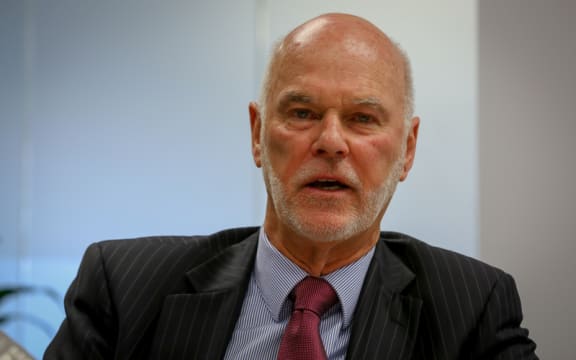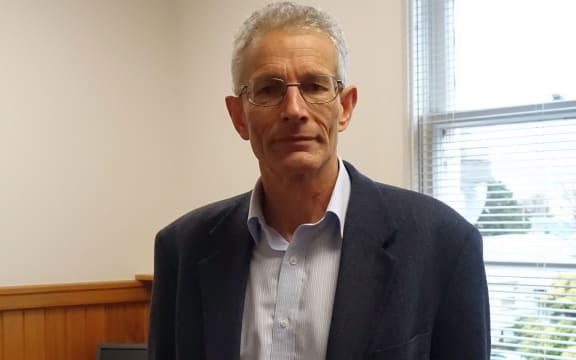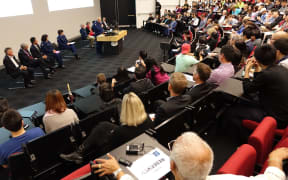Scrapping University Entrance and charging interest on student loans are among drastic measures being proposed for the tertiary sector in a new report.

The Productivity Commission recommended a return to student loan interest and floated the idea of individual $45,000 accounts for students. Photo: 123RF
The Productivity Commission's draft report on new models of tertiary education says the tertiary system is slow to change and too focused on the needs of institutions, not students.
It said government regulations had created local monopolies and cartels and despite changes in technology, there had been a growth in "traditional" tertiary education - enrolments by young people in full-year, face-to-face courses.
The chairperson of the commission, Murray Sherwin, said the tertiary education system did some things well, but regulations and funding systems were making it difficult to innovate.
"That's a danger for the existing system, for the future of our tertiary education system," he said.
"It also means that we have some students who do very well out of the system, there's still plenty who are outside the system or are not doing so well and we think a well functioning tertiary ed system would reach back to those more effectively as well."

Murray Sherwin said some aspects of the tertiary education system were making it difficult to innovate. Photo: RNZ / Alexander Robertson
The draft report suggested an overhaul of the government agencies that oversee tertiary education, with less bureaucracy but tough penalties.
It said the University Entrance standard should be dropped because some universities set a higher standard for entry, while others enrolled students who did not have University Entrance.
"University Entrance holds little or no value, and may do harm," it said.
"University Entrance does not reliably signify preparedness for higher-level study. It also implies that a young person who achieves University Entrance is best off attending a university, when this may not be the case."
$45,000 student accounts suggested
Mr Sherwin said the report also floated, but stopped short of recommending, an idea for focusing the funding system on students, rather than institutions.
"We could open an individual student account and put around $45,000 for every young New Zealand turning 16, and that would be available to be used to purchase tertiary education courses."
The report said the funding would be sufficient to pay for a degree and students could use student loans to pay for further study once they had used up their allocation.
Industry Training Federation chief executive Josh Williams said the account was an interesting idea, but there were potential problems.
"One of the things we might worry about is if 18-year-olds spent their entitlement all at once on something that didn't necessarily get them a good result, and then found that they were out of subsidy by the time they needed to do something a bit more useful later in life."
Mr Williams said such a system would require better career guidance and information for students and tight quality control, to ensure tertiary courses did not waste students' time and money.
He was also wary of giving teenagers too much responsibility for study options that would determine the supply of skills in New Zealand's economy.
"A number of these moves put a lot of the power in the hands of students," he said.
"We think it's a little bit light on what are those labour market signals coming back into the education system to let young people and tertiary education providers know what it is that needs to be delivered."
Student funding account 'extraordinary' - Universities New Zealand
Universities New Zealand director Chris Whelan said giving every student an account for tertiary education funding was a "provocative and quite extraordinary suggestion".
"If the system was purely focused on meeting student demand and student desires then it would be a great way forward.
"But the reality is the system's trying to balance up a lot more than just simply giving students what they want, it's actually around trying to produce the skills that New Zealand's employers and businesses actually need."

Chris Whelan said the report contained some sensible suggestions. Photo: SUPPLIED
Mr Whelan said the report contained some sensible suggestions and picked up universities' concerns that the tertiary education system was "locked down", with a limited ability to provide new products.
However, he said it was too simplistic in places, with recommendations that amounted to reducing regulation and leaving things to the market.
The spokesperson for the 16 polytechnics and chief executive of Weltec and Whitireia polytechnics Chris Gosling, said they agreed with the Commission's aim for a more flexible, innovative system, but needed more time to consider the specific recommendations.

Chris Gosling said he agreed with the Commission's aim of a more flexible system. Photo: RNZ / John Gerritsen
The draft report suggested loosening some of the regulations that restricted institutions from setting up, and what they were allowed to call themselves.
"Any provider should be able to apply to NZQA to use the terms "university", "polytechnic", "institute of technology" and "college of education," the report said.
It also suggested allowing foreign institutions to set up in New Zealand and claim government subsidies.
"Government should approve for New Zealand those providers and courses approved in jurisdictions with which NZQA has mutual recognition agreements, or in other jurisdictions where the New Zealand government is satisfied with the quality assurance arrangements."

Charging interest on student loans would save about $300 million, the report said. Photo: 123rf.com
Interest charge for student loans recommended
The report said the government should start charging interest on student loans, as that would save about $300 million a year that could be better spent elsewhere.
It said trusted tertiary education providers should be allowed to set up their own courses without having to apply to another body such as NZQA or the Committee on University Academic Programmes.
It also recommended doing away with a requirement that degrees be taught by people involved in research.
The report said the government should stop its performance-linked funding system, which penalised institutions that did not meet performance targets for course and qualification completions. It said the penalties were too small and bad providers should simply lose their registration.
It said the government should change the law so it was no longer responsible for public tertiary institutions and any debts they ran up.
The commission was taking submissions on its draft report until 21 November and would provide the government with a final report by the end of February.






